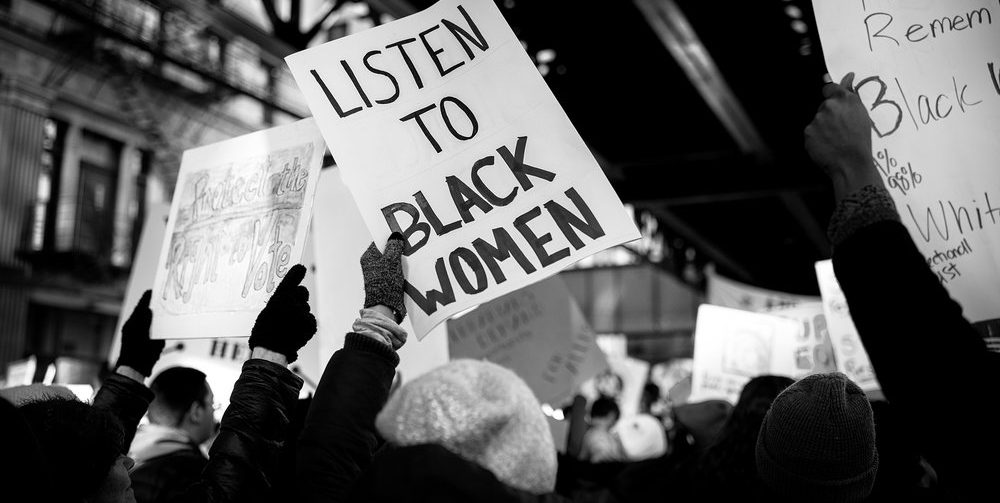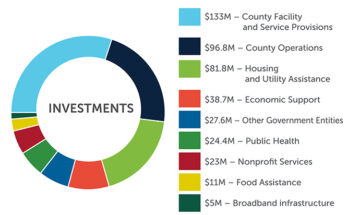“The comfort of this country has been built on so much misery. Know the history” ~ Toki Wright
Written by Ryan Virden for The Good Men Project
It’s scary as hell, but there’s no doubt. We can’t be alive in no time but now
— Mos Def
Every day we are reminded of the unprecedented nature that is our current reality. COVID-19 has exposed the fundamental shortcomings of the institutions that make up our society. As millions lose their jobs and turn to the government to do its job — protect its citizen’s basic rights– the moral bankruptcy at the foundation of our country has become painfully obvious. Nothing illustrates this more clearly than the inept and embarrassingly ignorant response of our society to the racial disparity in death rates from coronavirus.
Every media outlet has dedicated at least some space/time to discussing the wildly disproportionate death rates between Black people and white people who have contracted COVID. In nearly all of them the disparity is framed as a possibility or, at the very best, a mystery that we must explore.
For example, NBC news ran a story earlier this month with the headline “African-Americans may be dying from COVID-19 at a higher rate. Better data is essential, experts say.” CNN is hosting a town hall exploring the issue. President Trump in his usual confused, muddled, and embarrassingly inadequate way stated, “We want to find out the reasons on it. Why is it three or four times more so for the Black community as opposed to other people? It doesn’t make sense and I don’t like it. We’re going to have statistics over the next two or three days.”
But it does make sense. The Surgeon General said what we all know to be true, communities of color are “socially predisposed to coronavirus exposure, and have a higher incidence of the very diseases that put you at risk for severe complications of coronavirus.” Put even more plainly, race isn’t the factor, racism is.
American history is rife with examples of trying to avoid the most fundamental aspects of our founding: racism and genocide. The story of American history is, in large part, the story of magnificent avoidance and gaslighting. I’m not interested here in detailing this history nor am I interested in illustrating the social predisposition faced by communities of color. Instead, I want to talk to those of us perceived as white. Those of us who when Jane Eliott asked to raise their hands if they would like to switch places with a Black person, without exception, kept our hands down.
We know what is happening. We are aware of the social order. We have two choices: 1) take advantage of the increasingly feeble rationales and feigned ignorance of the mainstream consciousness or 2) do the work to understand our own identities and work towards an ethic of solidarity and shared humanity.
Recognizing whiteness is a new thing for us. Except for when it isn’t. There is a phenomenon that permeates the white consciousness commonly referred to as white ignorance. This idea that we, those of us perceived and considered white, simply don’t know the reality of race because we haven’t had to. Whiteness in normal and therefore our existence and experience is the norm.
While this is certainly a privilege of being considered white, it is only true to a degree. Like the citizens of Omelas in Ursula K. LeGuin’s “Those that walk away from Omelas,” we know the truth. We have been shown the misery our ignorance is founded on. In that sense white ignorance is much more than the passive absence of knowledge. As philosopher Charles Mills suggests, white ignorance is something more; it is “militant, aggressive, not at all confined to the illiterate and uneducated but propagating at the highest levels of the land, indeed presenting itself unblushingly as knowledge.”
While many of us perceived as white are honest when we claim “not to know” about the mechanisms and pervasiveness of racism, we know this passive ignorance is the direct result of the more aggressive and deliberate miseducation perpetuated by those in power since the inception of our country. And we know that we are, in large part, complicit in our own ignorance. We choose it. Continuously.
We must choose differently. Again, drawing on LeGuin’s work, we must walk away from Omelas. We must reject the allure of white ignorance. We cannot see the disproportionate impact of COVID and hide behind the lie of ignorance. Now is the time to read the books. Ask the questions. Engage the conversations. Sign up for the workshops.
Our ignorance is maintained through the very structure of our society. It is entirely possible to live our lives, as white people, without ever having to interact meaningfully with people of color. And many of us don’t. That must stop today. Our society is fundamentally changing. It is up to us to shape it in a more humane and just way. Another lesson from COVID is that we are all interconnected.
Now is the time for solidarity, not individualism. Now is the time for curiosity and imagination not rigidity and retreating to our worst ways of being. Now is the time to unlearn whiteness.
I began this piece with a reminder from Mos Def that we are here now and must act in this time. We are given this opportunity to be alive. To leave our mark. May we take full advantage and emerge more connected. More loved. More human. I want to end with the words for Franz Fanon:
Each generation must, out of relative obscurity, discover its mission, fulfill it or betray it.





